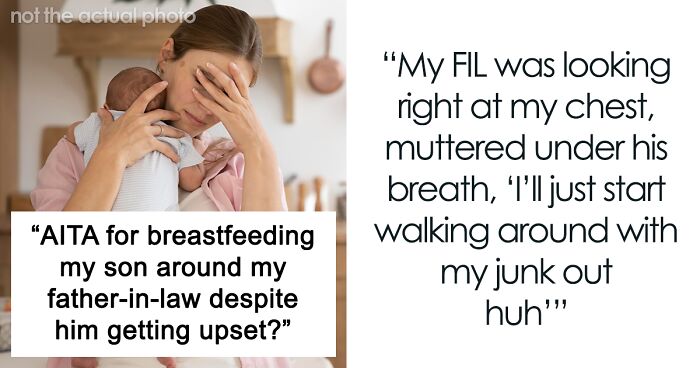
FIL Suggests He Take His “Junk” Out After Spotting New Mom Breastfeeding In Her Livingroom
Interview With ExpertUNICEF reports that rates of breastfeeding are increasing around the world as women gain more protection and support. This is great news since breast milk is a safe, natural, nutritious, and sustainable food for babies that helps them grow healthy and strong. However, the act of nursing, especially in public, is still frowned upon by some people who see the exposure of women’s skin as inappropriate.
Unfortunately, the in-laws of this new mom fall into this category and often make her feel uncomfortable about breastfeeding. But recently, they overstepped all boundaries by forcing her to nurse in private in her own home.
Scroll down to find the full story and a conversation with certified breastfeeding counsellor Katie McCann, founder and certified lactation educator at Milkology, Stacey Stewart, and maternal-child health and lactation expert and founder of Fresh Squeezed Lactation, Dana Havard, who kindly agreed to chat with us more about the lingering stigma of breastfeeding.
Breastfeeding, especially in public, is still frowned upon by some people
Image credits: Image by Freepik (not the actual photo)
What this new mom didn’t expect is that she would get the same treatment in her own home
Image credits: Image by Freepik (not the actual photo)
Image credits: CompleteEnthusiasm28
Women experience many difficult challenges while breastfeeding
Image credits: senivpetro / Freepik (not the actual photo)
Many women find breastfeeding an enjoyable and bonding experience. However, they also experience challenges that can make it difficult, like the baby not latching properly, having sore or cracked nipples, low milk supply, too much milk, painful breasts, infections, and blocked milk ducts. Combined with hormonal fluctuations, all of these difficulties can exhaust the nursing parents, making them experience negative emotions, such as frustration, shame, resentment, and so on.
Some women go through even more complex breastfeeding challenges, like breastfeeding aversion. Those who experience it can feel negative emotions and physical responses during nursing. This can span from irritability and frustration to rage, disgust, intrusive thoughts, unpleasant skin sensations, and an urgent need to remove the baby from their chest.
So imagine that on top of all of this, they have to deal with people who tell them that breastfeeding in front of others is inappropriate or distracting. These negative reactions from those around them can be very damaging and have profound psychological impacts on them.
“They can trigger feelings of shame, anxiety, and self-doubt at a time when women are already navigating significant physical and emotional changes. These remarks can undermine a mother’s confidence, potentially leading to stress that may interfere with milk production and overall maternal mental health,” explained certified breastfeeding counsellor Katie McCann.
She tells Bored Panda that breastfeeding still remains taboo due to a complex mix of social, cultural, and historical factors. “Many societies still struggle with viewing breasts primarily as sexual objects rather than functional biological organs designed for infant nutrition. This objectification, combined with deeply ingrained modesty norms and lingering discomfort around female bodies, contributes to the persistent stigma.”
“We urgently need the public to reframe their view of breastfeeding, so that it is understood as nutrition for babies”
Image credits: Image by Freepik (not the actual photo)
However, it shouldn’t be like that—nursing is something that all women should feel comfortable and proud of doing, as they’re simply providing their children with the nutrients they need to survive. This can be done by further normalizing breastfeeding. Maternal-child health and lactation expert and founder of Fresh Squeezed Lactation, Dana Havard, suggests doing it by educating doctors who can help mothers make evidence-based and informed decisions.
“We end formula companies association with any continuing education for medical professionals and the readily available samples they give to doctor offices. We end formula lobbying. We stop banning educational videos on social media platforms because they show a diagram of a breast. We lobby to stop the sexualization of women and their breasts,” she further suggests, while also being aware that these goals are very difficult to achieve.
Until this happens, nursing women can find ways to cope with or respond to negative remarks about breastfeeding. “First off, you don’t owe anyone an explanation. But if you feel like responding, you can flip the script and ask them why they think breastfeeding is a problem. This opens the door for a real conversation, where you can clear up any myths, drop some knowledge, and maybe even change their perspective,” said founder and certified lactation educator at Milkology, Stacey Stewart.
Meanwhile, McCann offers some healthy coping strategies that include:
- Seeking support from other breastfeeding mothers, either through local groups or online communities.
- Developing confident, concise responses that educate rather than escalate conflict.
- Prioritizing personal well-being and recognizing that uninformed opinions do not diminish the importance of their choice to breastfeed.
- Connecting with supportive family members and healthcare professionals who can provide emotional backup.
- Remember your rights! In most countries (and everywhere in the US), you have the right to breastfeed anywhere a child is allowed to be so you cannot be intimidated or asked to move by any member of the public or employee at that establishment.
Most readers sided with the new mom
While some thought she was in the wrong
Poll Question
What is your opinion on the reaction of the husband's parents to the breastfeeding situation?
They are overreacting and should support the new mom
They have a right to express discomfort in the situation
They should educate themselves on the benefits of breastfeeding
Their behavior is inappropriate and disrespectful
If they are uncomfortable tell them they are welcome to come back in 12 months after you wean.
That a fantastic comeback! "Can we come round this weekend?". "Sorry, not yet, the baby's still breastfeeding". 😄
Cover them up. Throw a blanket over their head and escort them out of the door...
Shaming someone for what is perfectly natural, is foolishness. If a man has a problem with seeing a baby being nursed and, like in this situation (where near to everything was covered up by the way), is afraid he may get a physical reaction from it, he has to be the wise one and remove himself from the situation. That is the grown-up thing. Blaming someone else for your own inappropriate reaction is the childish thing to do.
If they are uncomfortable tell them they are welcome to come back in 12 months after you wean.
That a fantastic comeback! "Can we come round this weekend?". "Sorry, not yet, the baby's still breastfeeding". 😄
Cover them up. Throw a blanket over their head and escort them out of the door...
Shaming someone for what is perfectly natural, is foolishness. If a man has a problem with seeing a baby being nursed and, like in this situation (where near to everything was covered up by the way), is afraid he may get a physical reaction from it, he has to be the wise one and remove himself from the situation. That is the grown-up thing. Blaming someone else for your own inappropriate reaction is the childish thing to do.

 Dark Mode
Dark Mode 

 No fees, cancel anytime
No fees, cancel anytime 




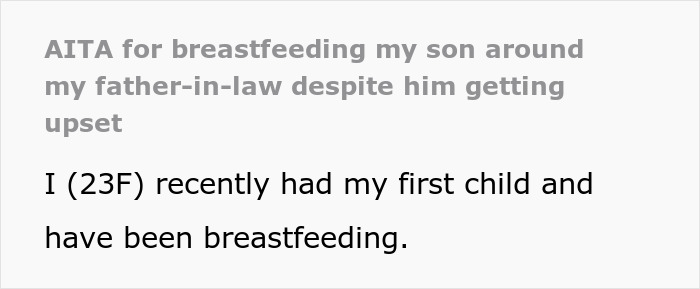
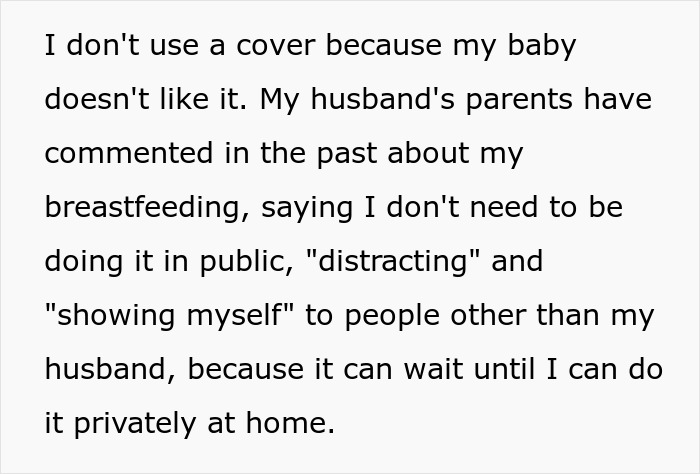
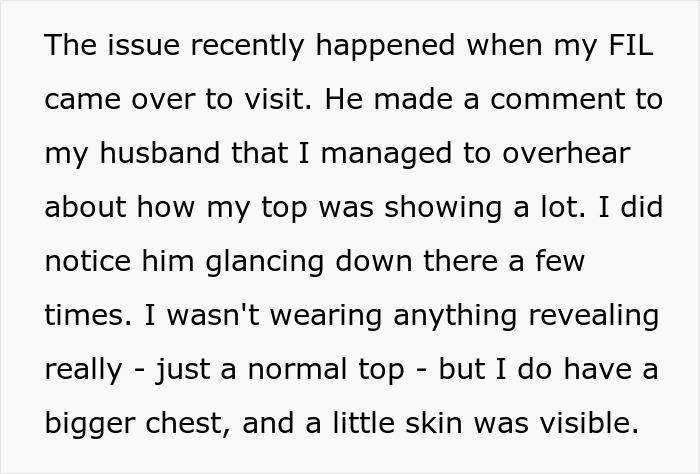
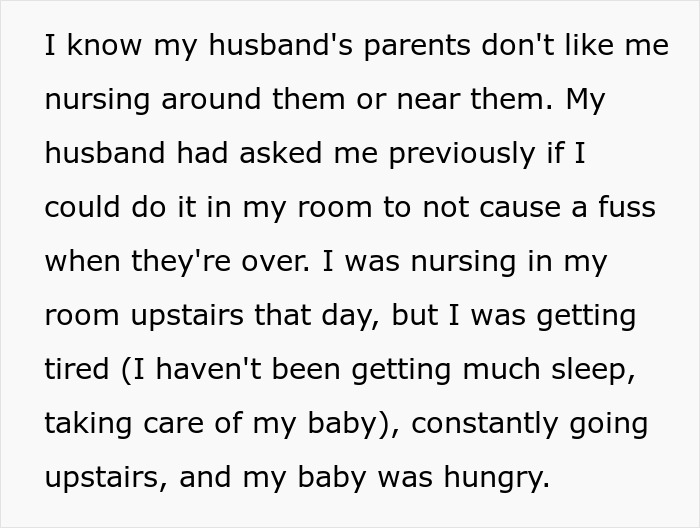
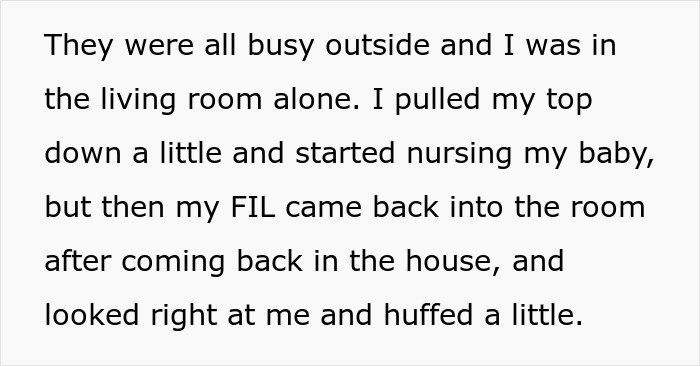
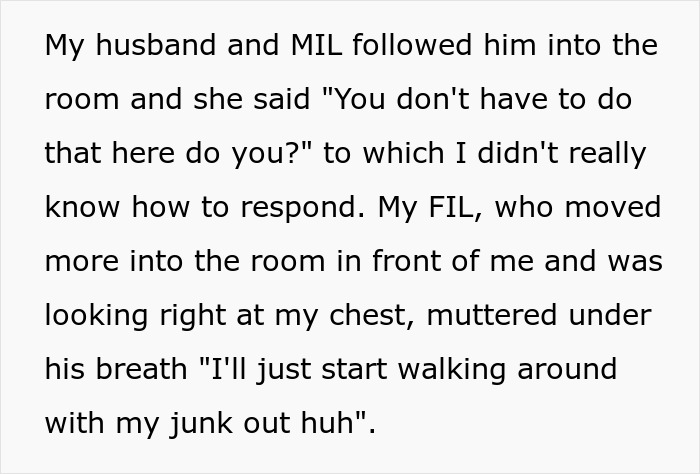

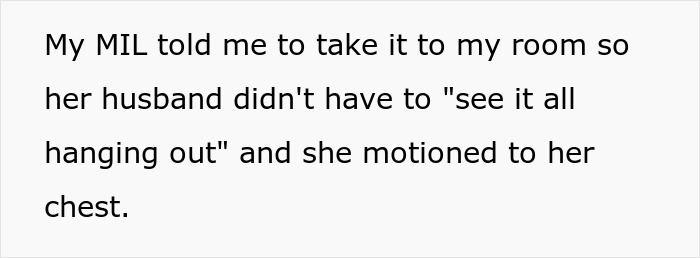
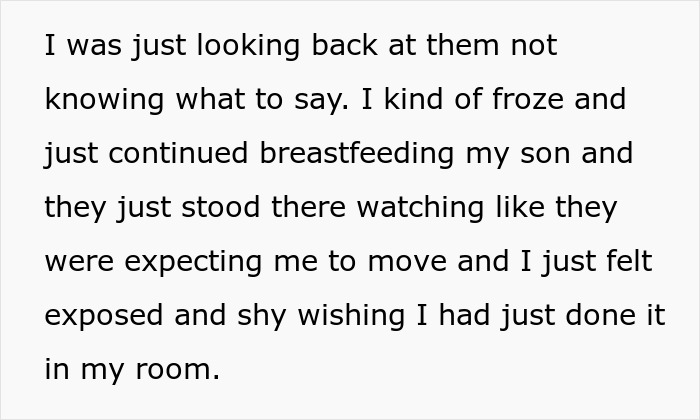
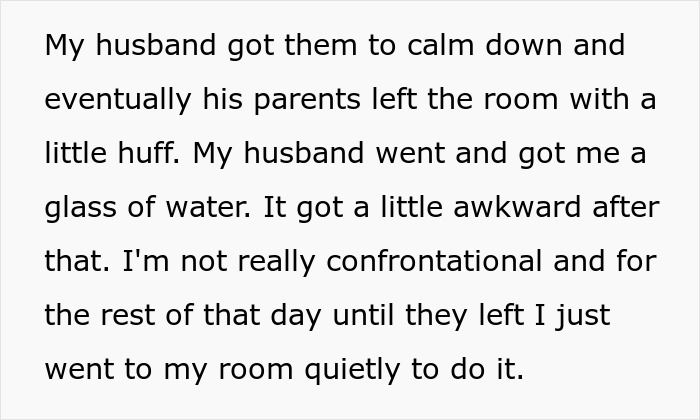
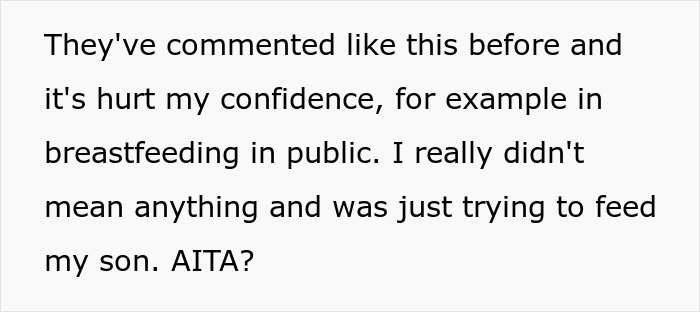


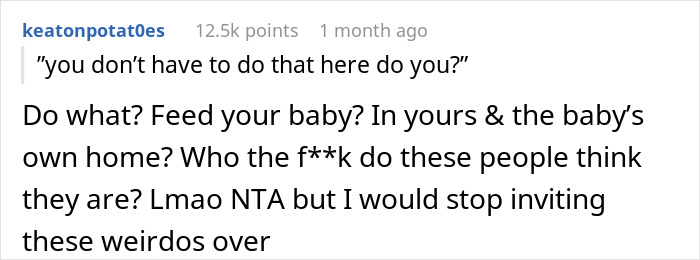




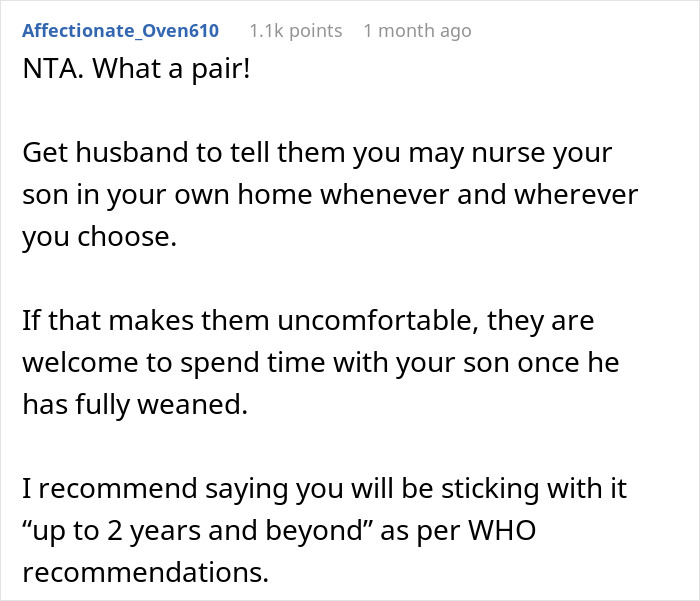


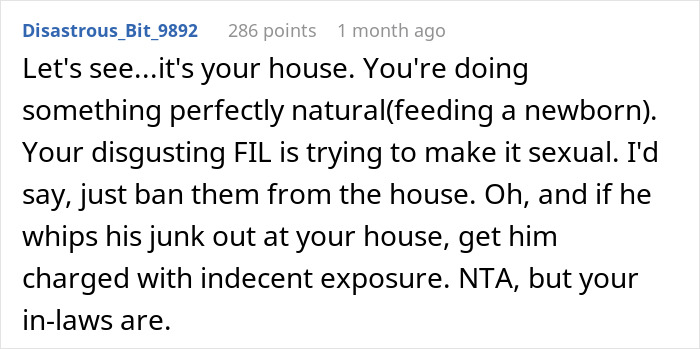
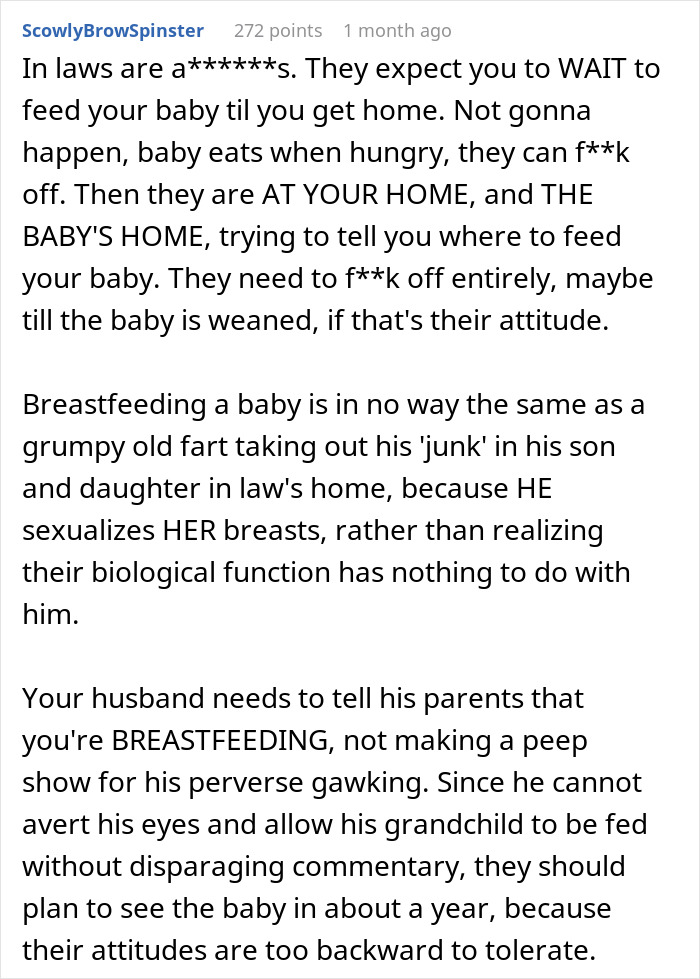

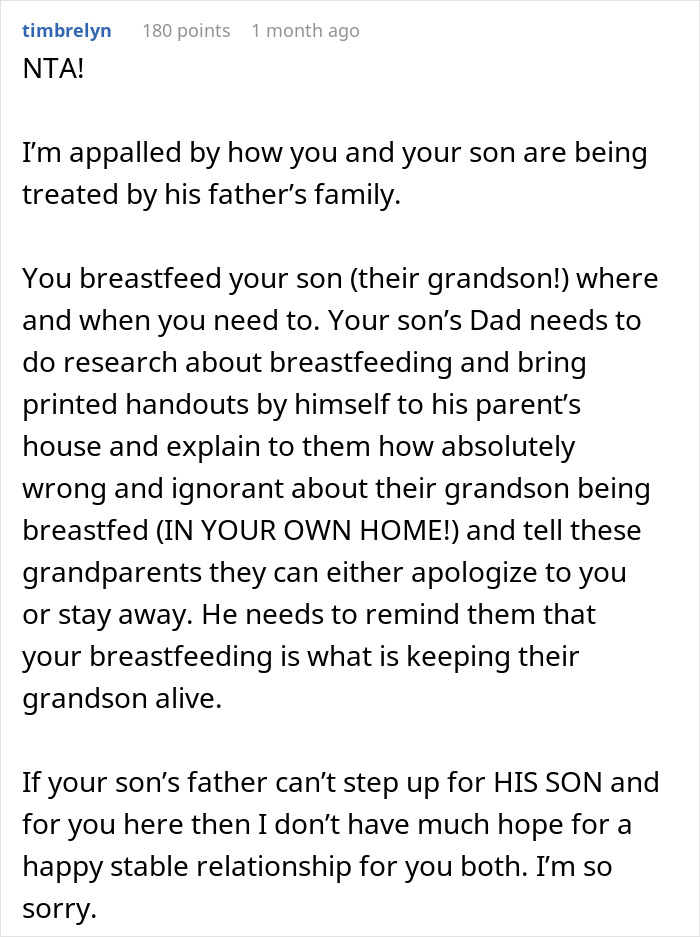
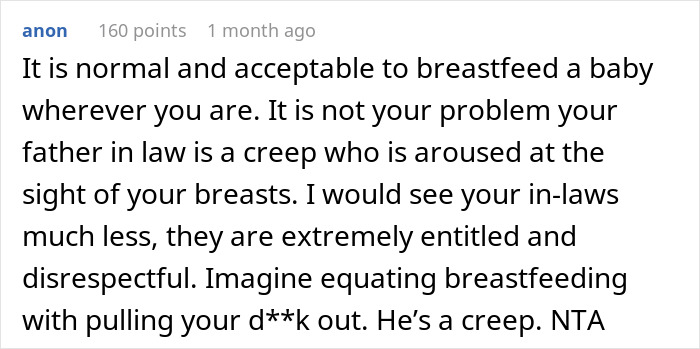
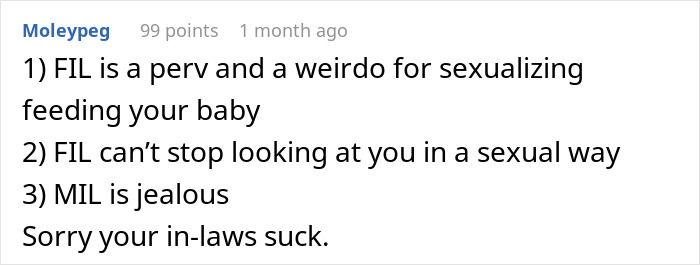



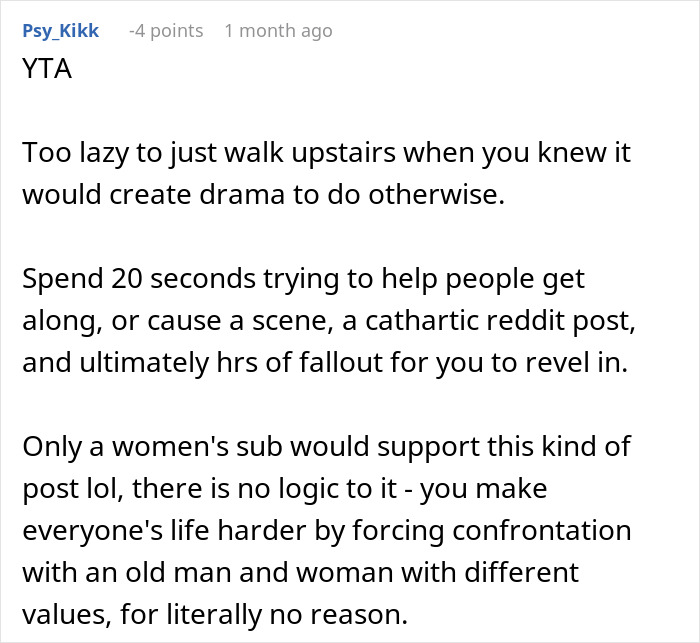
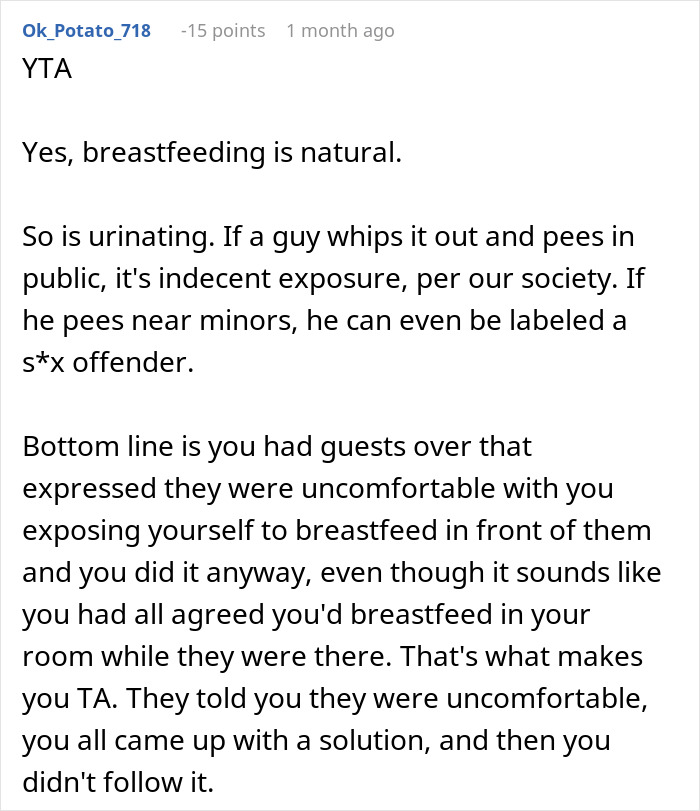












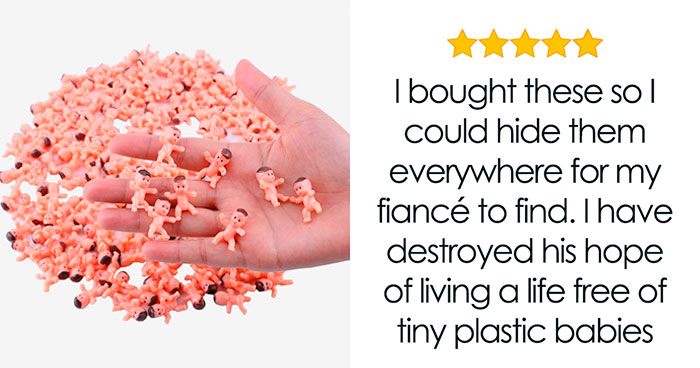















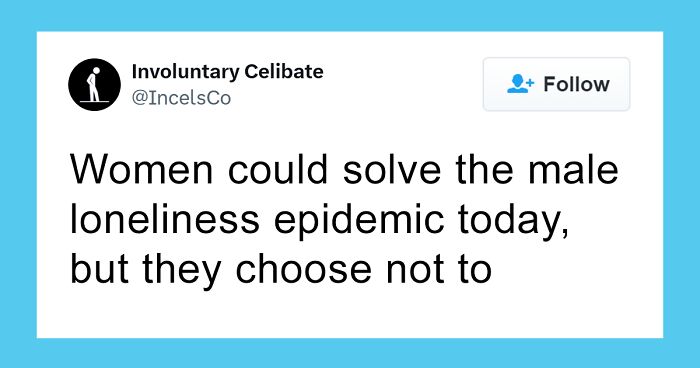





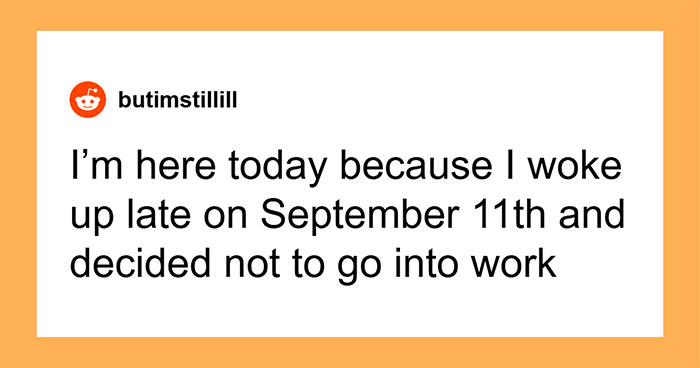










18
45